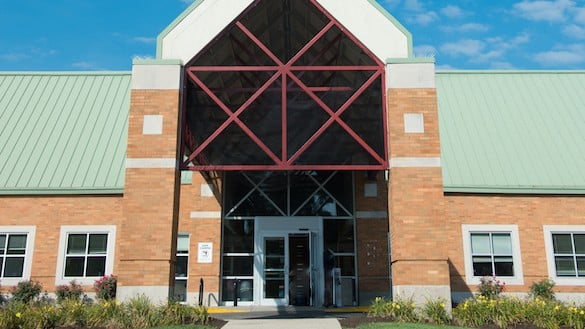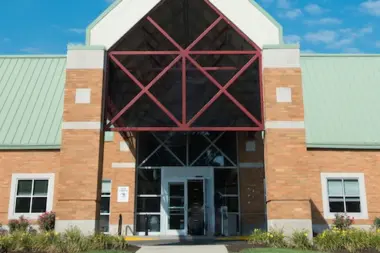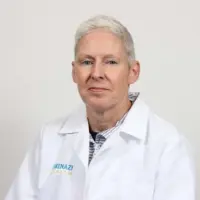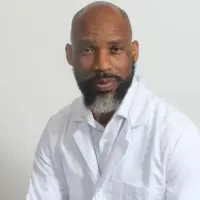About Eskenazi Health Center Blackburn
Eskenazi Health Center Blackburn is a partner of the Indiana University School of Medicine. They provide a wide array of healthcare services from multiple locations, including mental health and addiction treatment at the center in Indianapolis, Indiana. They have inpatient and outpatient substance use disorder (SUD) treatment. The programs serve children, teens, young adults and adults. Additionally, they offer special programs for clients who’ve experienced trauma, as well as children and teens with serious emotional disturbances. The facility accepts private insurance, self payment, Medicare and Medicaid.
Convenient On-Campus Services
The health center is conveniently located near I-65 and only two miles from the Old Northside Historic District. There is easy access to community resources that support recovery and healing, such as parks and green spaces.
Clients dealing with trauma, substance use and mental health issues often neglect other aspects of their health. The center offers convenient services to help clients with every aspect of their lives and health. The Eskenazi Health Pharmacy is on site, making it convenient to pick up prescriptions. The Marion County Public Health Department has a dental clinic for clients who need dental services.
The buildings feature local artists’ artwork to ensure a calming and welcoming environment as you navigate your addiction and mental health treatment. For women with children, the Women, Infants, and Children (WIC) Services are also on site.
Harm Reduction Options Available
For clients who need harm reduction options while working on sobriety, there are Overdose Lifeline NaloxBox kits available. These include xylazine and fentanyl test strips, and the boxes are available 24/7.
Dual Diagnosis Support
Clients in treatment for substance use and co-occurring mental health disorders will receive various treatment modalities. These include evidence based treatments, such as individual therapy, group counseling and trauma informed counseling.
Enthusiastic Client Feedback
Although some clients mention long wait times and difficulty reaching staff by phone, others are enthusiastic about the programs. They mention the friendly and warm treatment from all the staff and excellent treatment from the doctors and nurses.
Latest Reviews
Rehab Score
Gallery


Other Forms of Payment
Private insurance refers to any kind of healthcare coverage that isn't from the state or federal government. This includes individual and family plans offered by an employer or purchased from the Insurance Marketplace. Every plan will have different requirements and out of pocket costs so be sure to get the full details before you start treatment.
Self-pay involves paying for treatment out of your own pocket. You can use savings or credit, get a personal loan, or receive help from family and friends to fund your treatment. If you don't have insurance or your insurance plan doesn't cover a specific program, self-pay can help ensure you still get the care you need.
Medicaid is a state based program that helps lower-income individuals and families pay for healthcare. Medicaid covers addiction treatment so those enrolled can use their coverage to pay for rehab. When a program accepts Medicaid the client often pays very little or nothing out of their own pocket.
Sliding scale payments are based on a client's income and family size. The goal is to make treatment affordable to everyone. By taking these factors into account, addiction recovery care providers help ensure that your treatment does not become a financial burden to you or your family, eliminating one barrier to care.
Medicare is a federal program that provides health insurance for those 65 and older. It also serves people under 65 with chronic and disabling health challenges. To use Medicare for addiction treatment you need to find a program that accepts Medicare and is in network with your plan. Out of pocket costs and preauthorization requirements vary, so always check with your provider.
Addiction Treatments
Levels of Care
Outpatient Programs (OP) are for those seeking mental rehab or drug rehab, but who also stay at home every night. The main difference between outpatient treatment (OP) and intensive outpatient treatment (IOP) lies in the amount of hours the patient spends at the facility. Most of the time an outpatient program is designed for someone who has completed an inpatient stay and is looking to continue their growth in recovery. Outpatient is not meant to be the starting point, it is commonly referred to as aftercare.
Residential treatment programs are those that offer housing and meals in addition to substance abuse treatment. Rehab facilities that offer residential treatment allow patients to focus solely on recovery, in an environment totally separate from their lives. Some rehab centers specialize in short-term residential treatment (a few days to a week or two), while others solely provide treatment on a long-term basis (several weeks to months). Some offer both, and tailor treatment to the patient's individual requirements.
Treatments
Mental health rehabs focus on helping individuals recover from mental illnesses like bipolar disorder, clinical depression, anxiety disorders, schizophrenia, and more. Mental health professionals at these facilities are trained to understand and treat mental health issues, both in individual and group settings.
Substance rehabs focus on helping individuals recover from substance abuse, including alcohol and drug addiction (both illegal and prescription drugs). They often include the opportunity to engage in both individual as well as group therapy.
Programs
Adult rehab programs include therapies tailored to each client's specific needs, goals, and recovery progress. They are tailored to the specific challenges adult clients may face, including family and work pressures and commitments. From inpatient and residential treatment to various levels of outpatient services, there are many options available. Some facilities also help adults work through co-occurring conditions, like anxiety, that can accompany addiction.
Young adulthood can be an exciting, yet difficult, time of transition. Individuals in their late teens to mid-20s face unique stressors related to school, jobs, families, and social circles, which can lead to a rise in substance use. Rehab centers with dedicated young adult programs will include activities and amenities that cater to this age group, with an emphasis on specialized counseling, peer socialization, and ongoing aftercare.
Clinical Services
Group therapy is any therapeutic work that happens in a group (not one-on-one). There are a number of different group therapy modalities, including support groups, experiential therapy, psycho-education, and more. Group therapy involves treatment as well as processing interaction between group members.
In individual therapy, a patient meets one-on-one with a trained psychologist or counselor. Therapy is a pivotal part of effective substance abuse treatment, as it often covers root causes of addiction, including challenges faced by the patient in their social, family, and work/school life.
Trauma therapy addresses traumatic incidents from a client's past that are likely affecting their present-day experience. Trauma is often one of the primary triggers and potential causes of addiction, and can stem from child sexual abuse, domestic violence, having a parent with a mental illness, losing one or both parents at a young age, teenage or adult sexual assault, or any number of other factors. The purpose of trauma therapy is to allow a patient to process trauma and move through and past it, with the help of trained and compassionate mental health professionals.
Staff

Lisa E. Harris, M.D
CEO

Angela Luessow, PMHNP-BC
Psychiatry

Robert Patterson, M.D
Psychiatry
Contact Information
2700 Dr. Martin Luther King (MLK) Jr. St.
Indianapolis, IN 46208